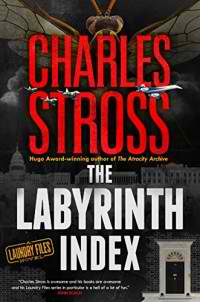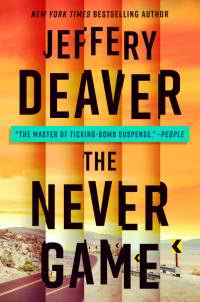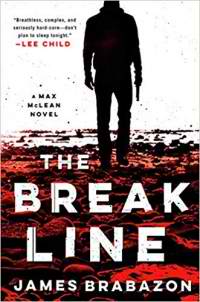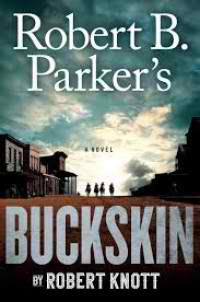The Execution of Justice by Friedrich Dürrenmatt
 Friday, May 17, 2019 at 7:14AM
Friday, May 17, 2019 at 7:14AM 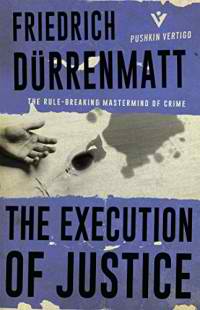
First published in Switzerland in 1985; published in translation by Pushkin Vertigo on April 2, 2019
The Execution of Justice reminds readers that there are “cases where the justice system made no sense, became mere farce.” At the very least, the justice system often flounders when it tries to discover the truth in a world where nothing is certain. Friedrich Dürrenmatt explores that concept in an engaging crime novel that indicts not just the Swiss justice system, but Switzerland itself, and perhaps all of humanity.
Dr.h.c. Isaak Kohler, former canton deputy, strolls into a restaurant, amiably greets Professor Adolf Winter, then pulls out a revolver and shoots him dead. Or did he? The police commandant looks up from his meal in time to see his friend Kohler strolling away from the victim. The public prosecutor, Jammerlin, insists upon using the full force of the police to find Kohler, which turns out to be unnecessary when Kohler strolls into the concert Jammerlin is attending, sits down next to the prosecutor, and enjoys the music until the police arrest him after politely waiting for the performance of Brahms to end.
Kohler puts up no defense, readily admits the crime (or does he?), but insists he had no motive. Nor can any motive be discovered. Thus he is condemned as a killer who kills for the joy of killing and is given the hefty (by Swiss standards) sentence of 20 years.
The novel is narrated by a low-rent lawyer, Herr Spät, who specializes in representing whores. Spät gets a letter from Kohler and visits the penitentiary to meet with him. The warden can’t understand why Kohler is so happy; it defies his faith in realism. Kohler asks Spät to reinvestigate his case on the assumption that he is not the murderer — another blow to realism and seemingly pointless, but Spät needs the money. Later, for much the same motivation, Spät sells himself again, but in a different way.
It is easy enough for Spät to figure out how Kohler rid himself of the murder weapon, but it is altogether more difficult to make a case for Kohler’s innocence. At Kohler’s request, he engages the services of a private investigator named Fredi Lienhard. His investigation brings him to a woman who calls herself Monica Steiermann, the boyfriend who beats Monica (Dr. Benno), and the Prince von Cuxhafen, a Formula I racer who also beats her. The convoluted “lives, loves, guzzles, swindles, scrambles and fusses” he encounters lead him at any given moment closer to or farther from the object of his investigation: “the truth behind the truth.” A truth that, in the end, “seems hardly more than a bizarre and evil fairy tale.”
The story is immensely clever. If Kohler had no motive, it soon becomes clear that someone else did. People begin to wonder, against all odds, whether the person with the motive is actually guilty, and the reader begins to wonder whether actual guilt has anything to do with justice. Innocence and guilt are both theories; nobody knows the truth. Spät, in the meantime, becomes involved in a surprising mystery of his own, one that seems to give the plot its final twist. The main story ends inconclusively, with Spät resolved to take a certain retributive action that he might or might not carry out. An “editor’s note” follows, completing the story with yet another twist.
A rambling section near the novel’s end is narrated by a drunken Spät, who indicts the justice system not as corrupt but as a lie, a false image of impartiality when everything about the police and lawyers and judges is biased in one way or another. Justice in such a system is an illusion, or at best a happy accident. Of course, those sorts of musings inspire people to administer their own brand of justice, a temptation that causes one of the characters to advise against revenge. “What had happened was unimportant, because it happened. You had to shake off the things that happened to you, anyone who was unable to forget was simply throwing himself in the path of time and would be crushed.”
Dürrenmatt describes his country and its post-war history in prose that is both lush and scathing. Spät tells us that he has been raised “according to the principles of the pedagogues and psychiatrists that our nation has produced along with precision watches, psychopharmaceuticals, secret bank accounts, and eternal neutrality.”
The story sometimes resembles a carnival in the way it assaults the reader with colorful and freakish characters. Strong prose, captivating characters, philosophical depth, and a plot that manages to be both byzantine and clear make me recommend The Execution of Justice as a classic example of a crime novel that rises above the genre.
RECOMMENDED
